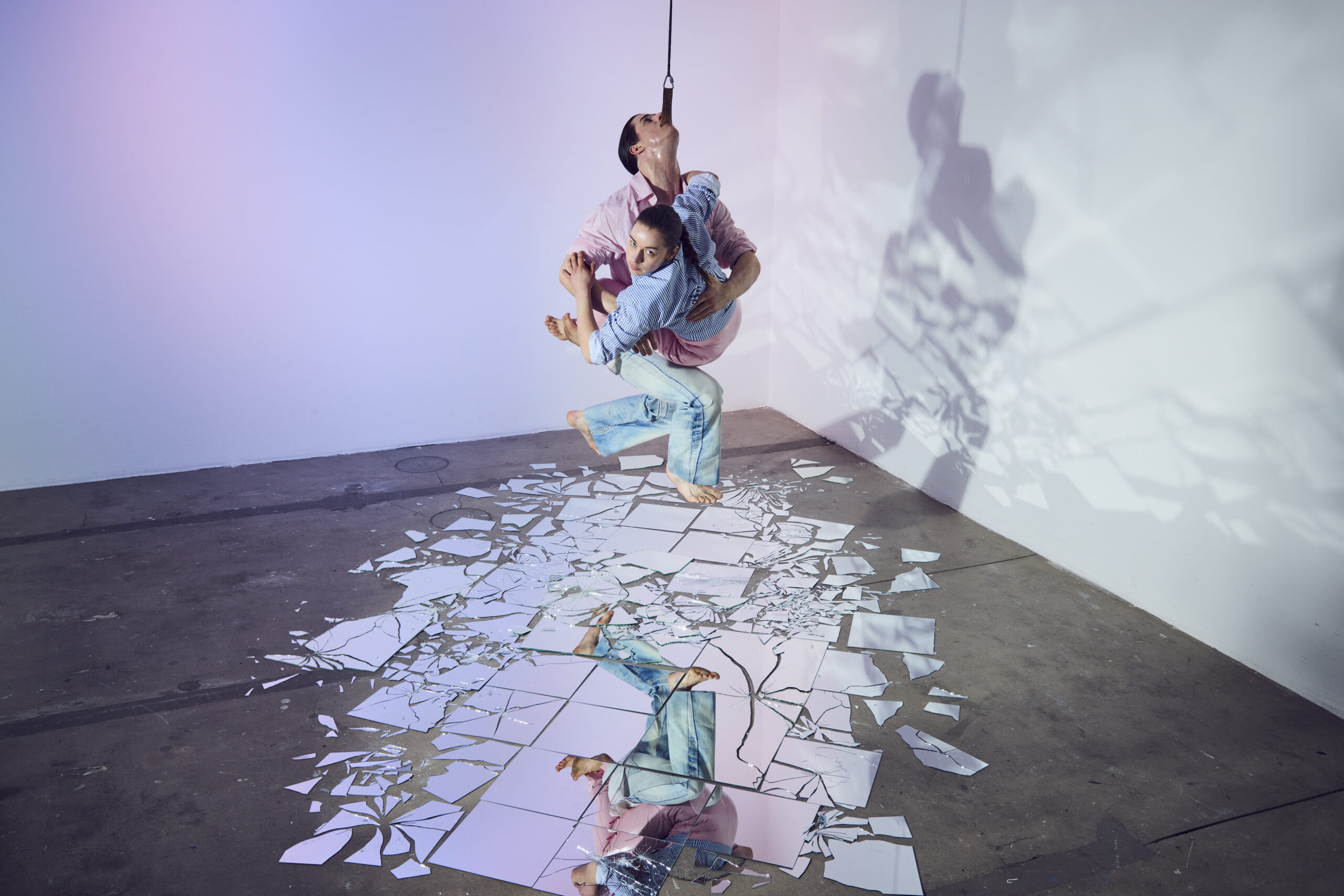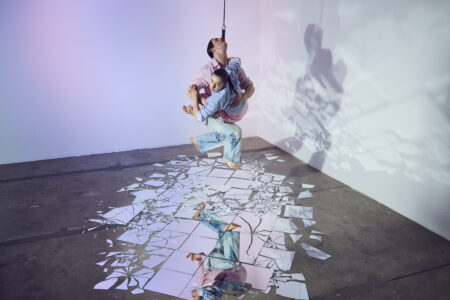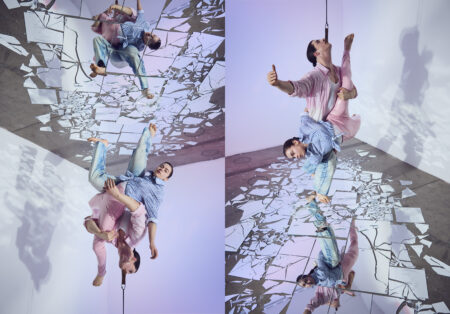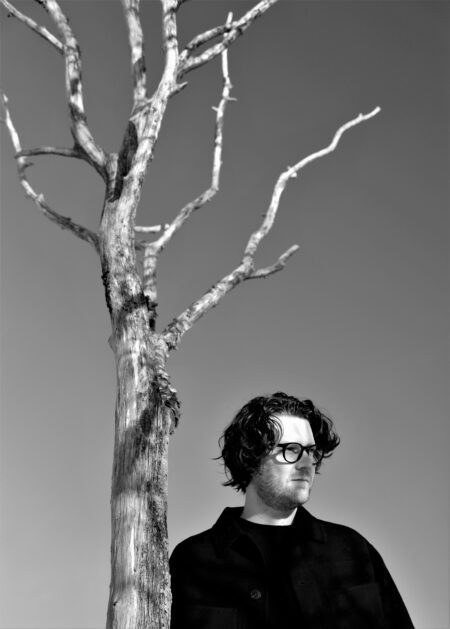
A Study of Losses is a free interpretation of the German author Judith Schalansky's novel "Verzeichnis einiger Verluste" which, with magical realism, depicts life and history as a series of losses and disappearances. Realms crumble, buildings turn to ruins, cultural artifacts are destroyed, animals face extinction. Most losses remain unknown, precisely because they are lost. We gaze upon what we believe to be history, yet it is essentially a series of temporary preservations in a vast sea of losses. Through circus, contemporary magic, and object manipulation, there is a playful and choreographic exploration of the allure of what has been lost. Four circus artists and an array of forgotten everyday objects awaken in an atmospheric landscape where even objects carry memories, dreams, and phantom pains.
The music, specially composed in close collaboration between Kompani Giraff and the American artist Beirut, plays a central role in the storytelling. The poetic lyrics support the dizzying existential experiences present in the theme of the performance. We are confronted with the burning question: What have I lost, and what am I afraid to lose?
Based on Judith Schalansky’s novel Verzeichnis einiger Verluste - An Inventory of Losses
Directed by: Viktoria Dalborg
Music: Beirut aka Zach Condon
Textbearbetning: Stina Oscarson
Set & costume design: Sus Soddu
Lighting design: Sofie Gynning
Sound design: Joakim Björklund
Makeup design: Sophie Rockwell
Magic consultant: Axel Adlercreutz
Object consultant: Rene Baker
Photo: Klara G
Technical production manager: Stefan Karlström
Production manager: Mette Klouman
Artists:
Benjamin Beaujard
Elaine Briant
Elsa Lardier
Siméon Gratini
Premiere:
The 10th of september 2024
at Jatka 78 in Prague
Calendar:
See tour dates in our Calendar
With support from:
Riksteatern, Dansens Hus – Elverket and Jatka78
Facts:
Duration of the performance: approx. 75 minutes without intermission.
Target group: High school, family audience
Stage size: 12 x 10 x 7 m
Spelyta: 8 x 7 m
Teaser
A Study of Losses
→ Vertical.mp4
→ Horisontal.mp4
Press release
A Study of Losses - Artist Beirut composes for a new touring production by Kompani Giraff
"A Study of Losses" is the upcoming touring production by Swedish contemporary circus company Kompani Giraff, set to premiere at Jatka78 in Prague on September 10th 2024. The music, specially composed in close collaboration between Kompani Giraff and the American artist Beirut, plays a central role in the storytelling. Beirut, aka Zach Condon, composes 18 songs for the performance, that will also be released as a separate album under the same name in September 2024.
A Study of Losses is a free interpretation of the German author Judith Schalansky's novel "Verzeichnis einiger Verluste" which, with magical realism, depicts life and history as a series of losses and disappearances. Realms crumble, buildings turn to ruins, cultural artifacts are destroyed, animals face extinction. Most losses remain unknown, precisely because they are lost. We gaze upon what we believe to be history, yet it is essentially a series of temporary preservations in a vast sea of losses. Through circus, contemporary magic, and object manipulation, there is a playful and choreographic exploration of the allure of what has been lost. Four circus artists and an array of forgotten everyday objects awaken in an atmospheric landscape where even objects carry memories, dreams, and phantom pains. The poetic lyrics support the dizzying existential experiences present in the theme of the performance. We are confronted with the burning question: What have I lost, and what am I afraid to lose?
“In A Study of Losses, we will explore the apocalyptic themes of loss and disappearances from Judith Schalansky’s book, through circus choreography and metaphorical language. The stage is set in a vanished landscape, where circus performers and everyday objects emerge in a twisted, modern ruin. It’s a fragmented narrative encompassing animals, landscapes, buildings, concepts, and memories that are lost to us. The incredible music by Zach Condon, aka Beirut, has become the nervous system of the performance and creates the ground for its choreographic universe. Beirut’s music adds an expansive ambiance and celebrates the beauty of life, reflecting on what it means to be human amidst a sea of known and unknown disappearances.”
Viktoria Dalborg - Director
About Kompani Giraff
Kompani Giraff is a Swedish contemporary circus company, dating back to 2015, that creates visual and unique circus performances with a foundation of poetic narrative and a passion for magic in everyday life situations. With this foundation we seek to explore new ground in contemporary circus and make use of our own different experiences in the performing arts to create truly interdisciplinary works of art. The three artistic directors, together with their hand picked ensemble, create shows with the unique flavor of visual elegance, fluid magic and intelligent choreography which the company is known for today.
Quote from Beirut / Zach Condon
“In spring 2023 Viktoria Dalborg, director at the Swedish circus Kompani Giraff, reached out to me, asking if I would be interested to provide the music for their next project, a show based on an adaptation of a novel by German author Judith Schalansky. Admittedly, I had neither heard of the circus or the author before but was very intrigued as soon as I read an abstract of the book and saw a few videos of Kompani Giraff’s previous work. I was immediately taken by the costume, lighting and stage design around the acrobatics.
The main themes in Schalansky´s book and in the adaptation for the circus show deals with the concept of loss and the impermanence of everything known to us: from extinct animal species, lost architectural and literary treasures to more abstract concepts of loss through the process of aging.
I wrote a few first songs that I was pretty happy with, the wide variation of sounds and ideas felt in debt to one of my all-time favorites: The Magnetic Fields 69 Love Songs. After having taken a break from writing because of other projects, I met up with Viktoria at a cafe in Stockholm to discuss our collaboration. She invited me to Malmö to see a special performance of their current production “Moln” in which Jonathan Johansson and David Lindvall, who wrote the music for that show performed live.
The show left me amazed and was unlike anything I had ever seen before. Not only were the acrobats deeply creative and expressive for their performances but also the whole atmosphere created by the lights, stage design and music made for a special kind of experience that went beyond a normal concert or theater piece to me. Having seen the full potential of such a show, I returned to Berlin doubly inspired to create something as meaningful and moving for their next project.
After finishing 11 songs and themes, Viktoria asked me if I could extend some of the songs with instrumental themes to match the total length of the planned performance. At that point I was deep in a sonic world taking inspiration from a lot of choir, renaissance and other early music I had been obsessed with and the instrumental pieces were quick to follow, almost all new pieces of their own.
I asked Clarice Jensen, an extremely talented cello player and arranger I had worked with for “No No No” and some live performances to arrange and play over some of these instrumental pieces with a string quartet. I titled them with the lunar seas inspired by the chilling tale of a man obsessed with archiving all of humanities lost thoughts and creations where they collect on the moon, who realizes all too late the life he has lost in the process.
A Study Of Losses has turned into a rather unexpected piece of music for me. At 18 songs and nearly an hour long, it is by far the largest album I’ve ever done.”
– Zach Condon
Berlin, april 2024
Press contact:
Mette Klouman
es.ff1722045839arigi1722045839napmo1722045839k@ett1722045839em1722045839
+46 70 777 44 84




